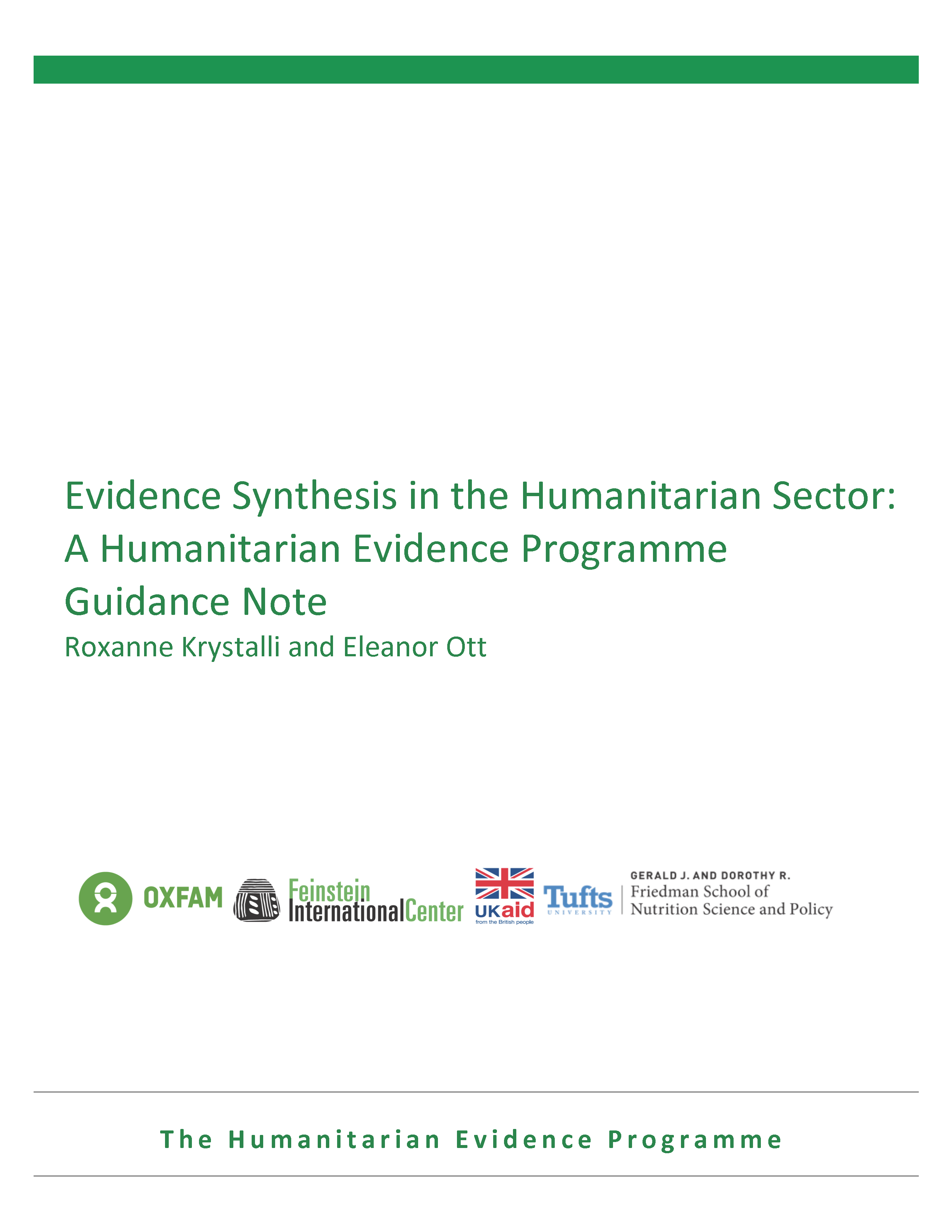This Guidance Note discusses an approach to systematic evidence synthesis in the humanitarian field. Though its recommendations explicitly apply to the evidence synthesis outputs commissioned by the Humanitarian Evidence Programme, they also aim to facilitate a broader conversation about evidence synthesis in the humanitarian field. Section I of this document discusses the utility and limitations of evidence synthesis in the humanitarian field. Section II outlines the process of conducting an evidence synthesis for the Humanitarian Evidence Programme, while Section III discusses the nature and types of evidence that these reviews may synthesize. Section IV delves deeper into certain stages of the review process, including defining the eligibility criteria, naming the search strings, and accounting for heterogeneity within the findings. Given that this document is not an exhaustive guide to evidence synthesis processes, reviewers are strongly encouraged to familiarise themselves with the growing literature around this topic. A suggested reading list can be found in the concluding Section V.
The Humanitarian Evidence Programme is a partnership between Oxfam and the Feinstein International Center at the Friedman School of Nutrition Science and Policy at Tufts University (FIC). The Programme aims to synthesize research in the humanitarian sector and communicate the findings to policymakers, humanitarian practitioners, and researchers, with the ultimate goal of improving humanitarian policy and practice. The programme is funded by UK aid from the UK government; however the views expressed in this document do not necessarily reflect the UK government’s official policies.







